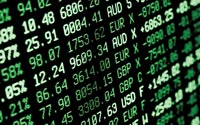 In the social media age, where word of a company can spread instantaneously over the Internet, many firms have reevaluated their PR efforts. A New York research firm has
completed a study that concludes that a public company’s reputation can account for a huge portion of its stock value. In the case of firms in the Standard & Poor's 500 Index, reputation
currently accounts for an average of 31% of share price.
In the social media age, where word of a company can spread instantaneously over the Internet, many firms have reevaluated their PR efforts. A New York research firm has
completed a study that concludes that a public company’s reputation can account for a huge portion of its stock value. In the case of firms in the Standard & Poor's 500 Index, reputation
currently accounts for an average of 31% of share price.
The firm, Echo Research, a unit of the UK’s Ebiquity, devised a formula that uses regression analysis to calculate the impact of
numerous factors, including media exposure, financial analysis, intangibles, such as the general thoughts and feelings about a company throughout its industry, and corporate reputation measured by
innovation and social responsibility.
advertisement
advertisement
According to the study, reputation accounted for more than half of the share prices of the top ten reputation leaders in 2011.
Apple and
Google were tied for the top spot last year in terms of the contribution that their reputations made to their share prices: 58% in both cases. Four other firms were right behind, including Exxon,
McDonald’s, Walt Disney and IBM, all with a 57% contribution. Rounding out the top 10 were Nike (56%) and United Technologies, Procter & Gamble and Chevron, all with a 55% reputation
contribution to the price of their shares.
At the other end of the spectrum, Echo calculated that Supervalu Inc.’s reputation was a 38% drag on the price of its shares. Sears Holdings,
Office Depot, Coca-Cola Enterprises and Sprint Nextel Corp. also had reputation issues that cost them share value instead of adding to it.
“The bottom line is that corporate reputations
are now underpinning investor confidence in companies’ ability to deliver the economic returns expected,” said Dan Soulas, managing director, Echo Research USA.
The financial
crisis contributed significantly to the decline of corporate reputations generally, said Soulas.
On the flip side, a rise in the value of corporate reputation over the last four years has
“laid the foundations for the share price recovery that we see today,” Soulas said. The Echo analysis shows that in the immediate aftermath of the 2008 market collapse, the average
contribution of reputation to company value in the Standard & Poor’s 500 Index fell by 3 percentage points to 13%. Since then, it has grown steadily to the average 31% it represents
today.
“What chief executives really want to know,” Soulas said, “is how corporate reputation can grow shareholder value.” The study concludes that a 5% improvement in
the strength of corporate reputation of an S&P 500 company will deliver an increase in market capitalization of close to 3%.